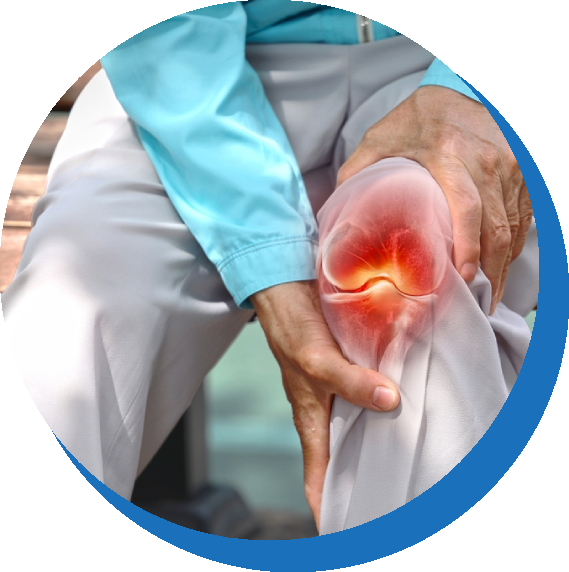Joint Pain (Shoulder, Hips, and Knees)
Joint pain is a widespread issue that can affect individuals of all ages. It can arise from a variety of causes, making it challenging to diagnose and treat. While joint pain can occur in any joint, the shoulder, hip, and knee are among the most commonly affected. This is due to the frequent use of these joints in various activities, leading to significant wear and tear over time.

Did You Know?
For optimal function, joints must be properly aligned and have a cushioning layer of smooth cartilage and synovial fluid between the bones. Issues with alignment, as well as a loss of cartilage, can result in joint pain and dysfunction.
Frequently Asked Questions:
What causes joint pain?
What treatment options are available for joint pain?
There are various treatment options available for joint pain, with the most suitable approach depending on the underlying cause. At Cellara Pain Institute, we offer a range of treatments, including:
Opioid-free pain medications
Joint injections
Regenerative medicine (PRP & stem cell injections)
To explore these and other effective treatment options for joint pain, schedule a consultation with our providers at Cellara Pain Institute today.
